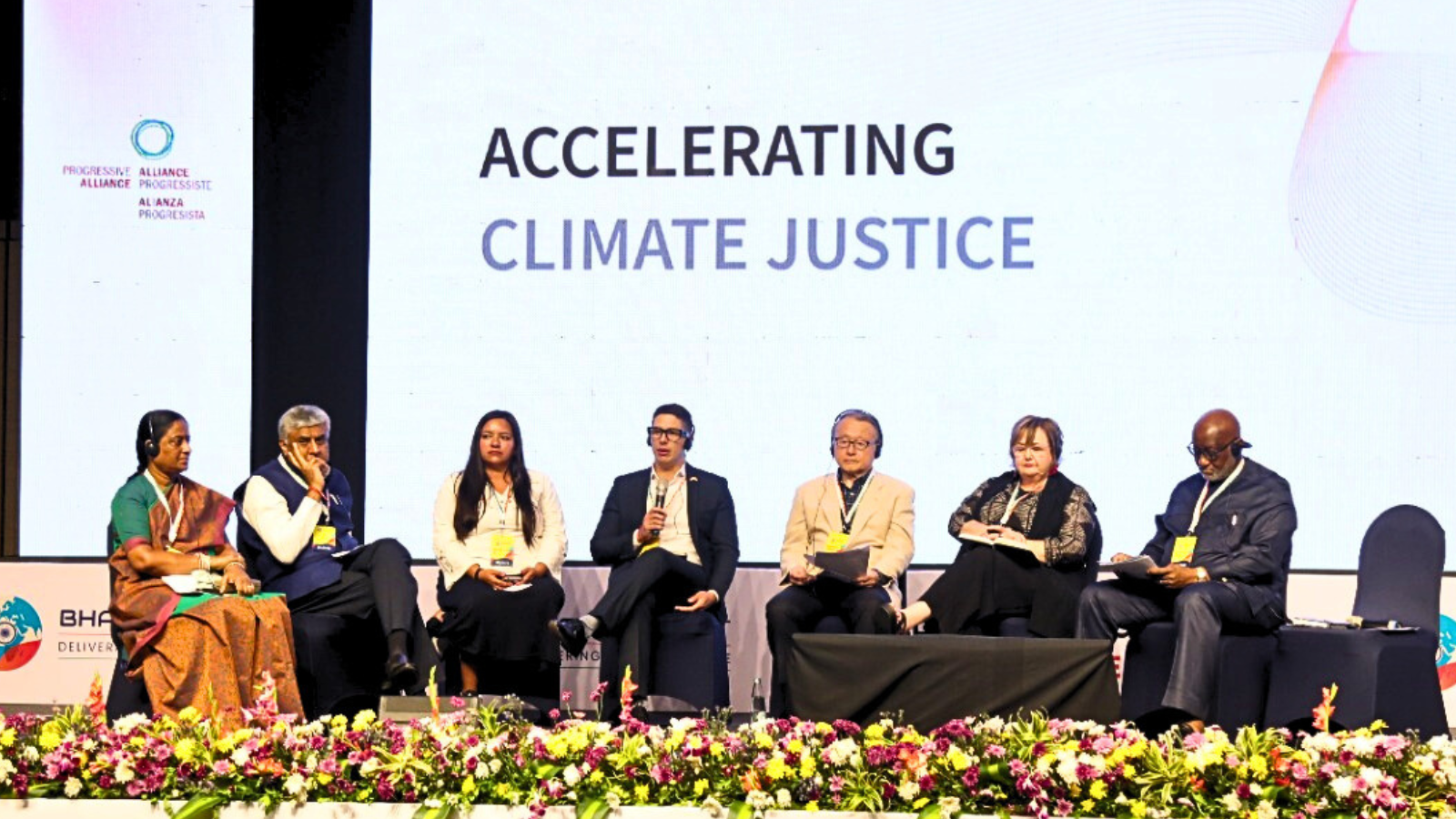Synopsis: At the Bhrat Summit 2025, leaders from around the world came together to tackle climate justice. The discussion centred on the need for urgent action, global solidarity, and innovative approaches to drive a just and inclusive climate transition.
At the Bharat Summit 2025, organised by the Telangana government on Saturday, 26 April, in Hyderabad, leaders from around the world came together to tackle one of the most urgent challenges of our time: Climate justice.
With the clock ticking faster than ever, the discussion centred on the need for urgent action, global solidarity, and innovative approaches to drive a just and inclusive climate transition.



